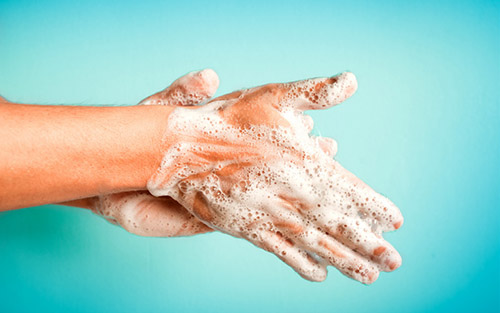
With the novel coronavirus, COVID-19, causing illness worldwide, and recognizing that there is no benefit to widespread panic, we wanted to update our shul-goers. We will continue to provide updates as new information becomes available.
If you have not traveled to an area where COVID-19 is prevalent or been in close contact with a traveler, and you develop respiratory symptoms, it remains likely that you have a seasonal illness like the flu rather than COVID-19.
At the present time, we urge common-sense and regular hand washing (as appropriate), with soap and water for at least 20 seconds, or with an alcohol-based hand sanitizer if soap and water are not available.
Good personal hygiene practices, including covering coughs and sneezes, are also important. To do this optimally, cover your cough or sneeze with a tissue, and then throw the tissue in the trash and wash your hands. If you don’t have a tissue available, cough or sneeze into your elbow.
Other appropriate actions include avoiding touching your eyes, nose and mouth and disinfecting objects and surfaces that are frequently handled.
At this time, we do not have a strict recommendation against hand shaking or kissing the sefer Torah or mezuzot for people who are not at all sick. Use common sense.
The CDC does not recommend that people who are well wear a face mask to protect themselves from respiratory illnesses, including COVID-19. Face masks should only be used by lay people who have symptoms of respiratory diseases, and who must be in public—to help prevent the spread of the disease to others.
Most importantly, several great poskim have personally told me and clearly stated that one must stay home and not go to shul if you are sick with a potentially contagious respiratory illness.
This is a good time to remind everyone that over 30 million people in the U.S. this season have gotten the flu, with between 16,000-30,000 deaths, including over 100 children. Flu vaccination is still indicated! By not getting or transmitting flu, you will not only save lives, but you will greatly help doctors who will have fewer patients to evaluate with unknown respiratory illnesses.
We should make sure there are alcohol-based hand sanitizers in the lobby areas. Custodial staff should be diligently cleaning our shuls and checking dispensers for hand soap and hand sanitizer to ensure that they are filled at all times.
If you recently traveled to a country with ongoing person-to-person transmission of COVID-19: It is prudent to check your temperature twice a day and monitor for any respiratory symptoms for at least 14 days from the time you left that country. If you have any symptoms or fever, see your doctor as soon as possible, but call the office or center first so they can appropriately isolate you upon entry to the office before they evaluate you.
May our tefillot be accepted by Hashem and may this epidemic soon end.
Rabbi Aaron E. Glatt, MD, is the chair of the Rabbinical Alliance of America’s Halacha and Medicine Commission, and director of the Lander College Medical Halacha course. Rabbi Dr. Glatt is also the chairman of medicine and chief of infectious diseases/hospital epidemiologist at Mount Sinai South Nassau Hospital, professor of medicine at the Icahn School of Medicine at Mount Sinai and a spokesperson for the Infectious Diseases Society of America. He is also the associate rabbi at Congregation Anshei Chesed in Hewlett.













